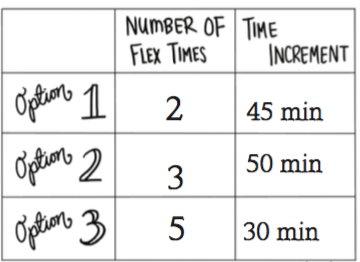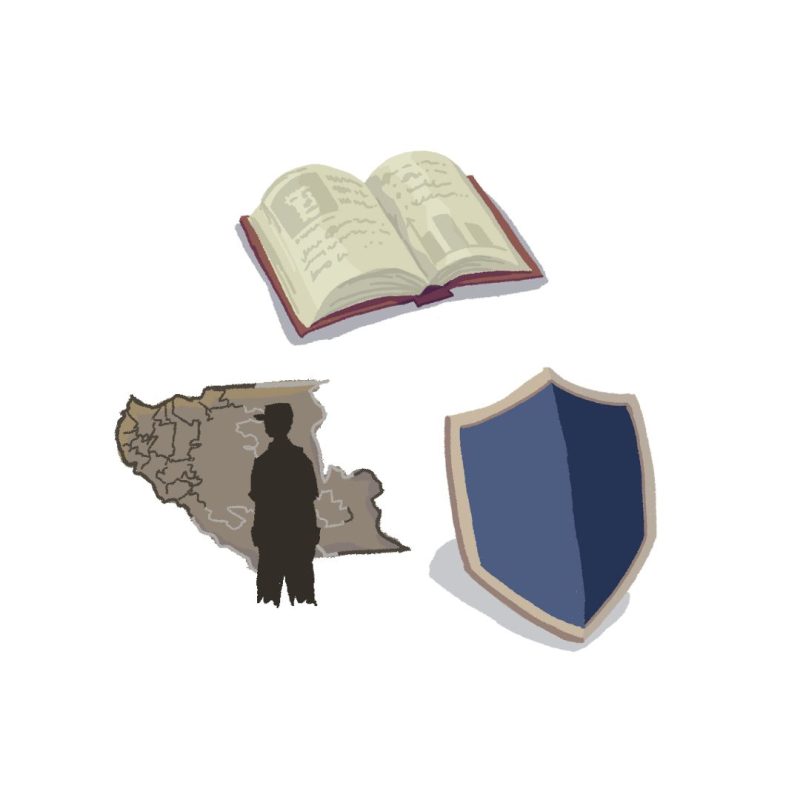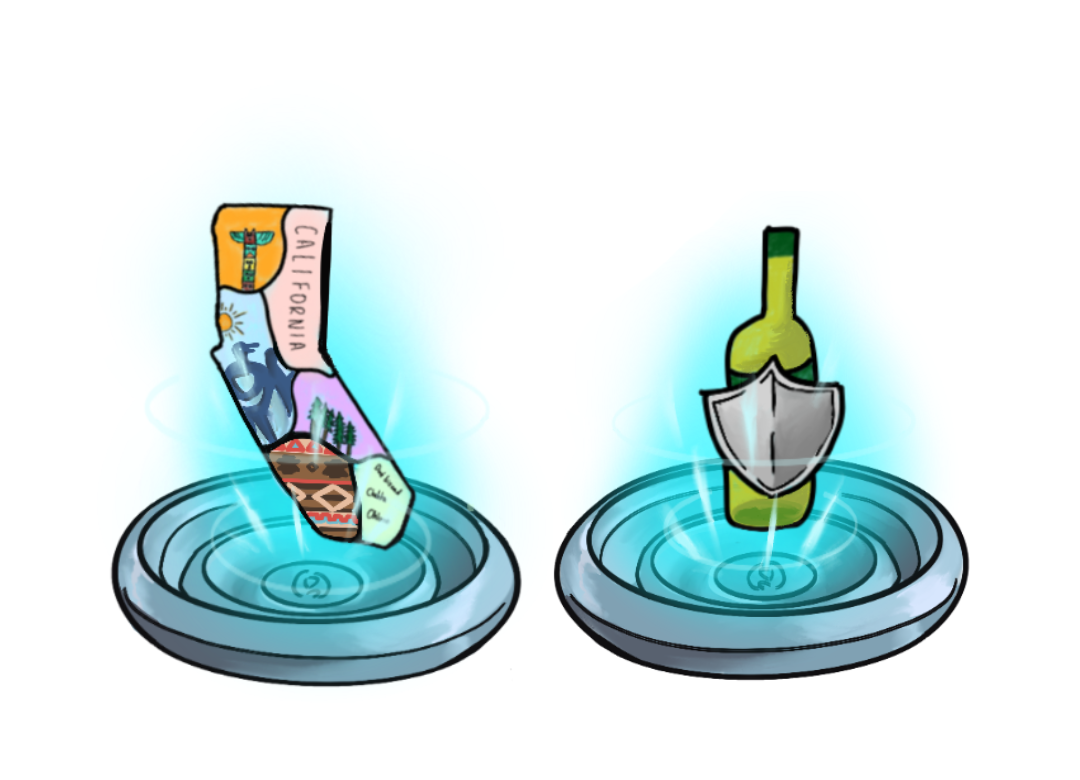Written by Sabrina Chen and Stina Chang
Gunn plans to implement a new bell schedule for the 2017-2018 school year in order to accommodate a new Social-Emotional Learning (SEL) curriculum. The bell schedule is still in progress, and the administration will gauge students’ feedback and opinions before finalizing it.
The current bell schedule, with only one Flex Time, does not provide enough time for both academic use and the SEL curriculum, according to Principal Dr. Denise Herrmann. To create space for the SEL curriculum while still allowing students to meet with teachers for academic help, a new bell schedule has to be installed.
“We started using Flex for academic needs, we want to continue that, and we now have the social emotional learning curriculum that is ready to be rolled out,” Herrmann said. “[We’re trying to] maintain all the things we have on our schedule but still honor that both of those are important for the growth of our students.”
The member of the Wellness team presented three new schedule ideas to the Student Executive Council (SEC) on Nov. 18. One of three ideas moves the tutorial after school on Thursday to the middle of the day. Two of the three ideas for the new schedule include a 90-minute A/B block schedule. The three schedules include either two, three, or five SEL/Flex Time a week.
Social-emotional learning
Data from Guidance Advisory Committee in 2013, the school wellness goal created through the Western Association of Schools and Colleges plan, student surveys such as Challenge Success, and the Center of Disease Control’s (CDC) preliminary findings in Jul. 2016 all state the need for SEL on campus. In addition, the executive summary for the March 8, 2016 School Board meeting confirmed the is a need for a coherent SEL curriculum throughout the district. As a result, the district-wide Social-Emotional Learning Curriculum Committee (SCC) was formed and began meeting June 2016.
According to Wellness Commissioner Junior Vidhu Navjeevan, SEL is a program that will eventually be mandated in all the schools in California within the next two years. The ultimate goal of implementing SEL in schools is to teach children and adults to effectively apply skills necessary to understand emotions and maintain positive relationship with each other, according Collaborative for Academic, Social, and Emotional Learning (CASEL) website. The 2015 CASEL Guide said that SEL skills are critical in reducing student’s risky behaviors such as drug use, violence, bullying and dropping out of school. Currently, SEL is not consistently in any of the schools in Palo Alto. According Herrmann, the SEL curriculum will be approved by February of next year.
“We want it to be something that students value,” Herrmann said. “ [We want] you to think that it is actually something that will help you be a better person, and that you have fun when you go to whatever chunk of time that is going to be.”
According Navjeevan, who has been part of the schedule change process, Gunn wants to get a head start on implementing the soon-mandatory SEL curriculum. “If we change our schedule now and if we implement SEL now, we have more control in what it looks like then rather than having to rush everything,” she said.
The Interim Board Report, presented by the SCC to the school board on Nov. 1, stated that SEL is expected to improve students’ attitude towards school, academic achievement and reduces stress among students. To meet these needs, the SEL curriculum will be implemented at Gunn in the form of a new bell schedule that includes a set time for TitanConnect. The Wellness team hopes that the new TitanConnect program will be rolled out to all four grades by fall of 2018.
TItanConnect
According to Wellness Teacher on Special Assignment Daisy Renazco, shifts were made to what was previously known as Titan 101, a program to help freshman transition from middle school to high school. Not only was the name changed to TitanConnect, but the goals were also changed.
“We shifted it this year to not have it be about that transition, but more about creating a space of family,” Renazco said. “The idea of ‘this is your space to connect with an adult that really cares about you, and wants you to feel that you have a safe place on our campus’.’”
The goal of TitanConnect is to provide students with more one-on-one time with an adult on campus other than their guidance counselor. “It’s really about learning about yourself and learning about your emotions and learning how to deal with those emotions in different ways that don’t affect other people negatively,” Navjeevan said.
Renazco emphasized the wellness aspect of the new TitanConnect program.“It’s not going to be perfect first time, but hopefully we can create something that has some intentions around building some strong connections like ‘I want to be in your corner’ as you’re trying to figure out how to navigate Gunn and this life,” Renazco said. “ I think we all can say it’s pretty challenging at times.”
What’s next
For the implementation of the SEL curriculum to proceed, the school board has to approve it. The SCC gave updates to the School Board in November 2016, but a formal presentation will be given in February 2017.
According to the SCC process timeline, the district committee is currently in phase 4, or development recommendation. Here, the committee is currently engaged in collaborative discussion and finalizing SCC’s recommendations. The next phase of this process is to present the development to the school board; SCC will write an interim and final report outlining its findings and recommendation, presenting it to the Board and school community during the February meeting.
“If it is approved we will start that next phase of implementation, training teachers, purchasing any materials, whatever it might be that happens after the board approves,” Herrmann said.
As far as the bell schedule changes are concerned, the Wellness Team is currently in the process of investigating and selecting the new schedule, Herrmann said in an email interview. She added that once the new schedule has been finalized, implementation process will begin; this process will be guided by the Instructional Council. At the same time, SEC is also working to get inputs from students and parents. A survey asking for more sought on this topic will be developed to a wider audience in Jan. or Feb. of next year.
As of right now, Navjeevan encourages students who wants to express their opinion on the implementation of the new bell schedule to talk either Herrmann or the SEL Committee. “Go knock on Dr. Herrmann’s door and say something,” she said. “Or if you just want to rant because you are tired of schedule changes, go talk about it. Because they listen. And they will understand where you’re coming from.”
























